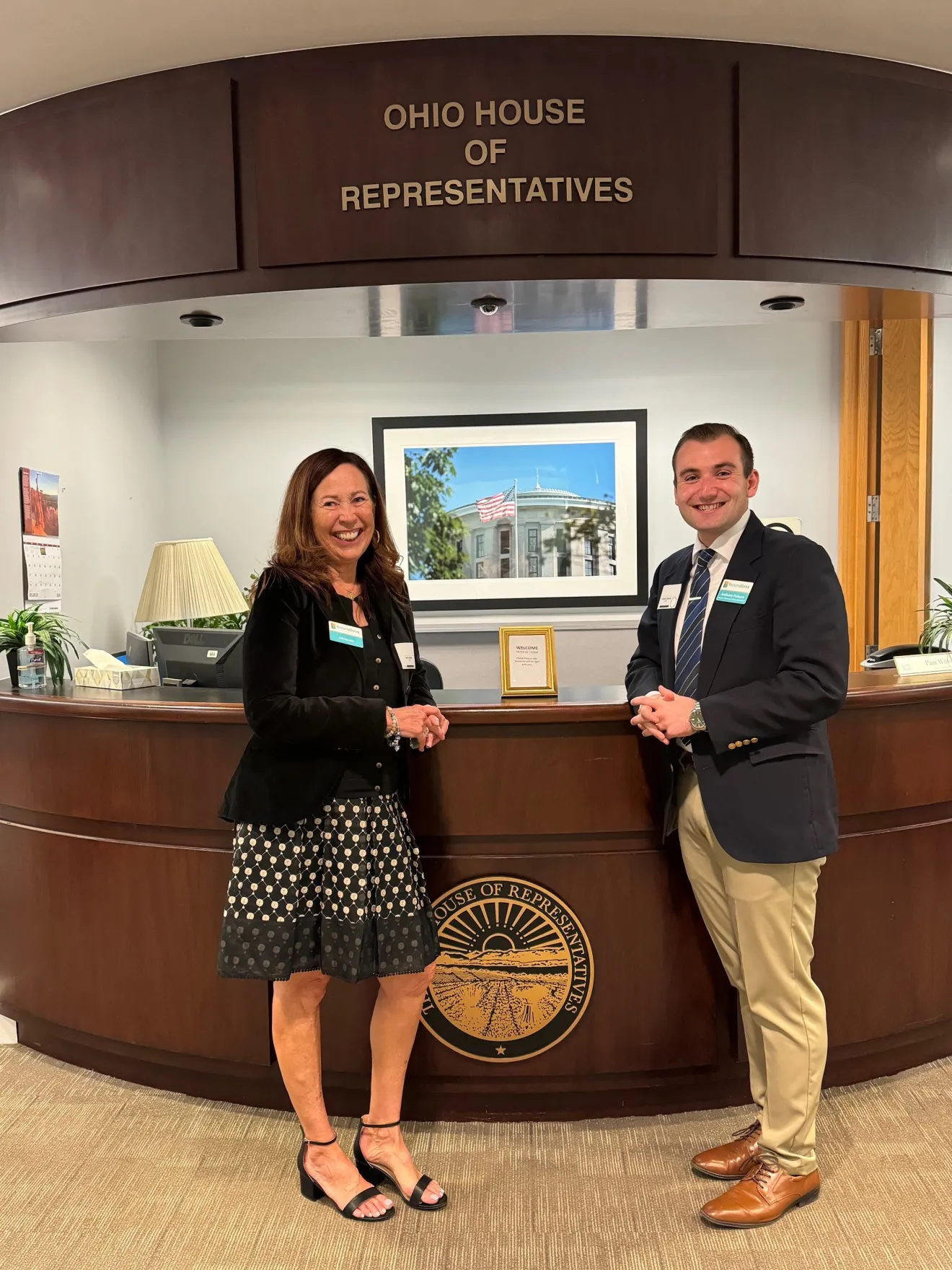What is Advocacy?
- News

Learn How Advocates Make a Difference
Advocacy is more than a buzzword for I Am Boundless; it is a mission that shapes every aspect of our efforts to support individuals with intellectual and developmental disabilities, behavioral health challenges and other complex needs. For Boundless, advocacy is a multifaceted approach that involves raising awareness, pushing legislative solutions and ensuring that every person receives the support they need to thrive. We recently sat down with three influential figures in the advocacy field to discuss their vital roles in shaping policies and implementing meaningful change.
What is Advocacy?
Advocacy takes many forms, but its core remains: making change for the greater good.
Advocacy is “bringing awareness to an issue or problem while pushing for a solution.” Anthony Kukura, manager of advocacy and government affairs at Boundless.
Advocacy is “making change happen by ordinary people for the greater good.” Teresa Lampl, CEO of The Ohio Council of Behavioral Health and Family Services Providers.
“Advocacy is helping people speak up for themselves and learn their rights and responsibilities.” Marci Straughter, a Boundless service recipient and very active self-advocate.
Anthony Kukura’s Role at Boundless
Kukura’s responsibilities span numerous counties, municipalities, statehouse districts and congressional districts. "We're in about two thirds of the current statehouse districts, about 90% of our congressional districts and dozens and dozens of counties and cities. So, there really are just a lot of different pieces that we’re looking at any particular time,” he explains.
Kukura’s work ranges from addressing local zoning issues for service settings to advocating for federal legislation in Washington, DC. He emphasizes that most of Boundless’ advocacy efforts center around securing state-level funding, which is crucial for any nonprofit organization’s operations and service delivery.
Teresa Lampl’s Mission with The Ohio Council
Lampl leads her organization in advocating for mental health and substance use services across Ohio.
“We are a trade and advocacy organization representing more than 165 private businesses providing community-based prevention, substance use, mental health and family services throughout Ohio,” she explains.
The Ohio Council ensures resources are available to support individuals needing behavioral health services. Lampl’s work includes addressing funding, policy and regulatory issues to ensure a comprehensive continuum of services is available to all Ohio residents.
Marci Straughter’s Journey
Straughter’s advocacy efforts are multifaceted and deeply impactful. As an Ohio Tech Ambassador, Marci uses assistive technology to maintain her independence, incorporating tools like smart door locks, thermostats and remote support systems. She actively engages with legislators and participates in various advocacy events.
“I’ve advocated on Capitol Hill and at the Ohio Statehouse for various issues,” she said. Her advocacy work addresses critical issues such as the provider crisis, advocating for increased SSI funding and pushing for better living situations for individuals with disabilities.
Straughter emphasizes the importance of self-advocacy and the need for people with disabilities to have their voices heard. “Advocacy also starts with self-advocates. We need to make our voices heard at the government level,” she states.
Her involvement in advocacy extends to working with organizations like the Ohio State Statewide Independent Living Council, where she focuses on remote support and housing issues. Straughter utilizes her experience to help others understand their rights and how to advocate for themselves. “I always say let’s stir it up and keep it cooking. We get the job done and have them listen to us,” she said.
Her efforts have not gone unnoticed, as she has had the opportunity to meet and discuss issues with influential figures, including U.S. Senator Sherrod Brown.
Areas of Focus in Washington
Both Lampl and Kukura are actively engaged in advocacy efforts at the national level. Lampl highlights the importance of appropriations, maintaining the Medicaid program and workforce development. “We need the federal government to pass a budget because it sends dollars to the states,” she states. Ensuring Medicaid remains an entitlement program and addressing insurance parity are top priorities.
Kukura, on the other hand, focuses on bipartisan legislation that provides practical solutions. Key issues include fixes to the 988-Suicide Crisis Line and creating a standard occupational classification for direct support professionals. “These practical changes can significantly impact the services provided,” he states.
Challenges in Advocacy
The current political climate poses significant challenges for advocacy work. “Sometimes, bipartisanship is viewed as boring,” Kukura notes. Despite the often-partisan environment, Kukura emphasizes the importance of practical solutions that can make a real difference.
Lampl echoes this sentiment: “The challenge is breaking through the noise to motivate folks to actually do something to make change.” Both highlight the importance of building relationships and creating momentum to overcome these challenges.
Effective Solutions for Advocacy
However, breaking through the noise requires strategic efforts and grassroots engagement. Lampl expresses the value of human connection in advocacy, saying, “Advocacy is really starting with just being willing to reach out and make that local connection.”
Straughter emphasizes the importance of actively listening to self-advocates and involving them in discussions.
Kukura highlights the power of grassroots efforts, stating, “Our political leaders are people like us, and it really does make a difference when they hear from the people living in those communities.”
Advocacy is a powerful tool for driving change, guided by passionate individuals dedicated to making a difference. Whether at the state or national level, the efforts of these advocates demonstrate the impact that well-coordinated advocacy can have on improving services and polices for those in need. Their voices highlight the importance of building relationships, leveraging grassroots efforts and breaking through the noise to achieve meaningful change.
If you want to become a Boundless Advocate, please contact Anthony Kukura at akukura@iamboundless.org to learn more or complete this SIGN-UP FORM.
To delve deeper into the discussion and insights shared by Lampl, Kukura and Straughter, listen to our latest podcast episode Well-Being Ep. 44: Advocacy in Action | Boundless (iamboundless.org)





